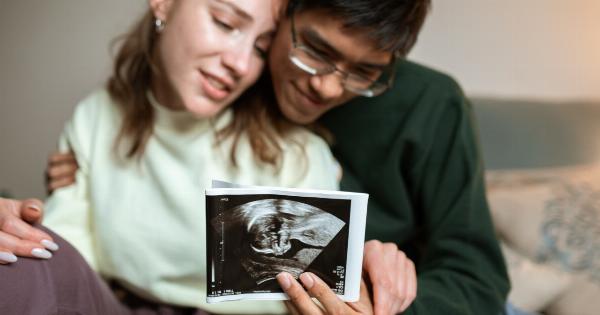It is well known that weight can have a significant impact on health outcomes. However, what is often overlooked is how extra pounds can affect fertility, particularly in women.
This article will delve into the details of how obesity can impact fertility and what steps can be taken to improve fertility outcomes in women.
Background
The World Health Organization (WHO) defines obesity as a condition where a person has excess body fat, which increases the risk of health problems. In the United States, over 30% of women are classified as obese, and this number is increasing rapidly.
Obesity is associated with a host of negative health outcomes, such as heart disease, diabetes, and stroke. However, few people realize that extra pounds can also have a significant impact on female fertility.
In fact, obesity is one of the leading causes of infertility.
How Obesity Affects Fertility
One of the ways in which obesity affects fertility is by causing hormonal imbalances. Excess body fat can lead to an increase in estrogen levels, which can disrupt ovulation and make it more difficult for women to conceive.
Additionally, obese women may have higher levels of insulin, which can also disrupt hormone levels and impair ovulation.
Obesity can also cause inflammation, which can damage reproductive organs and disrupt the menstrual cycle. This can lead to irregular periods, which can make it more difficult to predict ovulation and time intercourse properly.
Another way in which obesity can impact fertility is by causing physical problems that make it difficult for women to conceive.
For example, obese women may have a higher risk of developing polycystic ovary syndrome (PCOS), which is a condition that can impair fertility. Additionally, obesity can cause problems with the uterus and cervix, which can make it difficult for sperm to reach and fertilize the egg.
Improving Fertility Outcomes in Women
Fortunately, there are steps that women can take to improve fertility outcomes, even if they are overweight or obese. The first step is to try to lose weight in a healthy way.
This can be accomplished through a combination of a healthy diet and regular exercise. A weight loss of just 5-10% can significantly improve fertility outcomes in obese women.
It is also important to manage any underlying health conditions, such as diabetes or PCOS. This can involve working with a healthcare provider to develop a treatment plan that includes lifestyle modifications and medications.
Finally, women who are struggling to conceive should seek out the advice of a fertility specialist. Fertility treatments, such as in vitro fertilization (IVF), can be very effective in helping women with fertility challenges achieve pregnancy.
Conclusion
Extra pounds can have a significant impact on women’s fertility. Obesity can disrupt hormone levels, impair ovulation, and cause physical problems that make it difficult for women to conceive.
However, by taking steps to improve overall health and managing any underlying health conditions, women can significantly increase their chances of achieving pregnancy.
If you are struggling with fertility challenges, don’t hesitate to seek out the help of a fertility specialist. With the right guidance and support, you can achieve your dreams of starting a family.





























